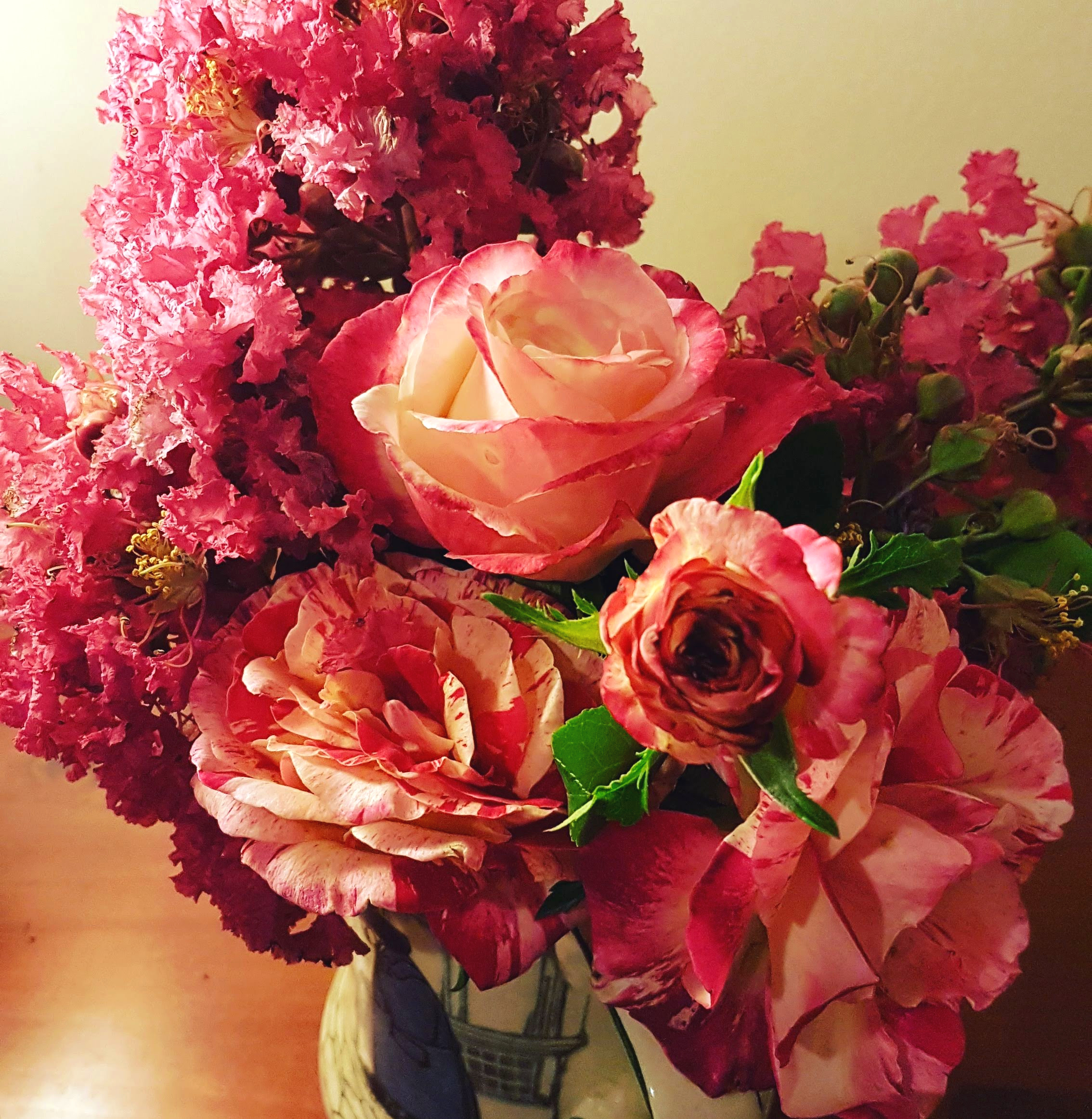2018: My Year of Writing
2018 was a bit of a bastard, I have to say. The stress of the past seven years – it’s been accumulating since I decided to apply for a postdoctoral fellowship, & has been exacerbated by teaching – caught up with me, bowling me over with an ear infection in May. The eardrum in my good ear ruptured and for a few weeks I was left completely deaf, even with my hearing aid turned to its maximum. So last year was mostly about trying to keep it together & get better, rather than doing half marathons as I had imagined (god knows what I was thinking). I dropped to 0.7FTE in July – something that took six months to be processed, even as I got sicker and sicker with repeated colds & flu & the infection. Much of last year was also spent wondering if I could even be an academic, particularly given that most positions are teaching and research, and I’m currently research-focussed. However, reducing my load really helped; I’m seeing a specialist for chronic fatigue; and I’m trying to stop working on the weekends. And on the plus side, due to needing to rest I’ve been reading much more, which has been such a pleasure.
Publications
The big highlight of last year was getting a contract for Hearing Maud: A Journey for a Voice, which will be published by University of Western Australia press on 1st July this year. I’ll be at the Byron Bay Writers Festival and am lining up some ducks for appearances in Perth, Armidale, Tamworth & Brisbane, & hopefully also Sydney, Melbourne & Canberra. The editor for the book also edited A Curious Intimacy & she loved Hearing Maud & said that my craft had really improved, so that made me extremely happy.
In terms of scholarly publications, I published an essay on Annamaria Weldon’s ecobiography The Lake’s Apprentice in Offshoot: Contemporary Life Writing Methodologies and Practice, edited by Donna Lee Brien & Quinn Eades. This was my first publication on ecobiography & it will be part of a critical monograph that I’m writing on the form next year. I also had a piece of creative nonfiction published in one of my favourite outlets, the Sydney Review of Books, on Georgiana Molloy & my decision not to have children. This was part of their New Nature series & I was delighted to be featured among other Oz environmental writers. I worry about being typecast as a writer on disability, & while this is an issue that’s important to me, my writing life has always ranged widely across genres and subjects, & at the moment it’s my driving force to educate people about what we’re doing to the planet.
As with 2017, I didn’t publish any fiction, although that doesn’t mean I didn’t try. I wrote a 12,000 word novella for the Griffith Review novella prize on tree clearing in Queensland and the mythic salting of Carthage in the Punic Wars, & I’m now going to turn this into a book.
Teaching
Due to physical collapse last year, I didn’t take on any teaching. I wrote and presented two lectures for a third-year Australian literature course, one on Tim Winton’s Island Home (which I hope I never have to read again in my lifetime) and the other on James Bradley’s Clade. I also delivered a lecture on the Environmental Humanities to a group of advanced students at the Australian Catholic University in Banyo. This year I’m convening that third year Australian literature course & tutoring two of the four classes.
King’s Park. So gorgeous.
Conferences
2018 was the year of overkill when it came to conferences – I went to seven of them and was on the organising committee for one – never again! The first, in February in Parramatta, was on postcolonial literature and climate change. It was a small and very enjoyable conference, but I was struck forcefully by how few young people were there. It’s part of the hollowing out of the humanities, & young people thinking that the humanities won’t help them find a job (I think studying humanities is one of the best things you can do in a coming world of automation but that’s a blog for another time). In the middle of the year I headed south to Canberra for two conferences – The Literary Interface, for which I organised two panels on science and literature with Dr Clare Archer-Lean of the University of the Sunshine Coast, and the Australian Historical Association conference. The latter was only the second history conference I’d been to and it was absolutely huge. I had a ball & met some cool people. I also caught up with my good friends in Canbez which is always a bonus.
Then, although I was still not feeling great & had depleted my reserves of energy with a week of listening, I flew up to Sydney for the Deaf History International conference. I was a bit nervous about this – I never know whether Deaf people are going to accept me or not because I wasn’t raised Deaf, even though I’ve lost 75% of my hearing – but they turned out to all be lovely. And the most wonderful thing, aside from the people, was that the equipment worked beautifully. All I had to do was turn up at the conference, put my hearing aid on its T-switch to access the loop system and I heard everything so clearly. I even had the luxury of being late one day, when usually I have to panic about getting places early so that I can check that equipment is working & that I can hear. I was inspired to start learning sign again, but after I looked into it with Deaf Services Queensland I realised I have no time this year because of my exhausting job. It’s either nearly a full day of lessons or two nights a week, and the day classes were full and I’m too tired in the evenings to function. So learning sign is on hold again.
At the end of the year I flew to Perth for the Australasian Association of Writing Programs conference. This was my first ever creative writing conference and I’m always glad of a reason to go to Perth. I met some great people, caught up with others who I knew, met my publisher for coffee and went for walks in Kings Park. Gosh I love Perth! I would move over there in a heartbeat, except that I know I would miss my family terribly.
I was on the organising panel for the International Association for the Study of Australian Literature conference, which was held at UQ in December. I arranged an event on sexuality and sport with writer Inga Simpson, scholar Rebecca Olive and artist Eric Bridgeman, which was prompted by the current exhibition of the UQ Art Museum, Play On. Following that conference I flew to Melbourne for a conference on colonialism and archives, which also went well, but by that stage I was pretty dead from my massive year & I just wanted to be back home again. I organised a panel on collecting with Anna Johnstone, a colleague from UQ, and Deidre Coleman from the University of Melbourne who does fabulous work on entomologists, and that worked out really well. However, fewer conferences this year are in order.
Supervision
Nearly all of my 4 students have submitted their work now. One passed with flying colours, two are being examined and one more has yet to submit. I’m always impressed with how well their work scrubs up, particularly when I consider my own paltry efforts with my PhD 10 years ago. Along the way they have done really well, with one winning a fellowship for creating digital art biographies, and another winning a Griffith Review fellowship which led to this fantastic publication.
Research
September saw me heading to Perth for the Cape to Cape trek. This gave me a fantastic sense of the environment through which Molloy moved, and the time and distance it took for Noongar people and colonists to move through the area. A blog post on this in the pipeline - I have to get my photos up at least because the environment was just extraordinary. I also made contact with some wonderful scholars working in botanical history - Alex George in Perth, and Sarah Maroske at the Herbarium in Melbourne. Sara and I will be presenting at a conference at Baltimore next year with my pin-up scholar Ann Shteir - I was pretty over teh moon when I received their invitation. Other than this, I was very much stymied in the writing of my ecobiography, which is starting to drive me quite mad.
The Year Ahead
At the end of April I’m moving onto a new contract which is teaching and research, rather than the research-focussed contract which I’m on now. This means that I won’t get much more research or writing done, although I’m certainly going to try. I’m sure able-bodied people can do both teaching and research, but the impact of teaching on my body is so severe that I need a much longer recovery time. However, my options are pretty limited at the moment so I don’t really have a choice. The rest of this year will be about writing what I can, when I can, amidst lecture preparation, tutoring, marking & publicity for Hearing Maud. My consolation is that I ever was, & will be, a tortoise rather than a hare, and I always get there in the end.

















